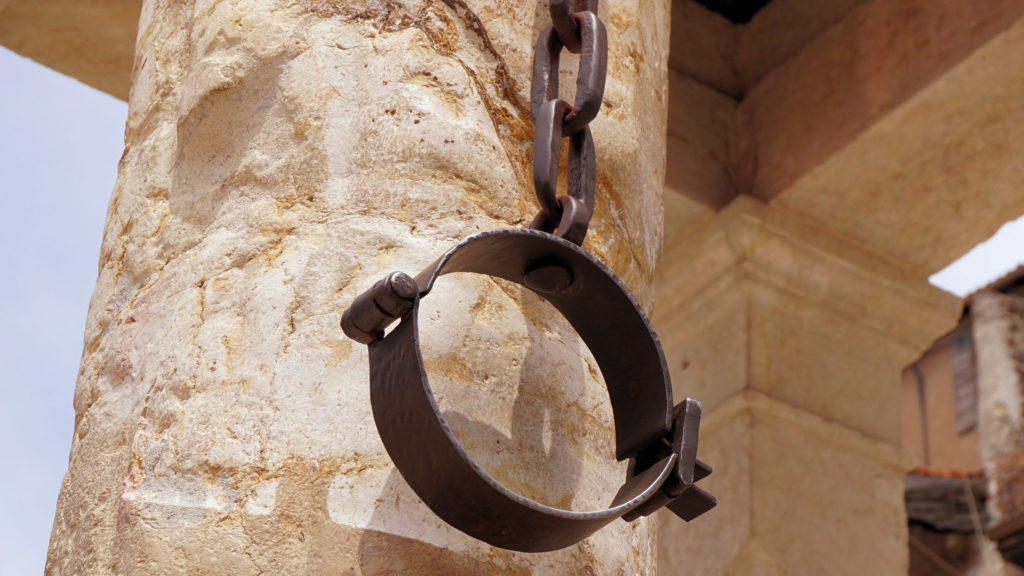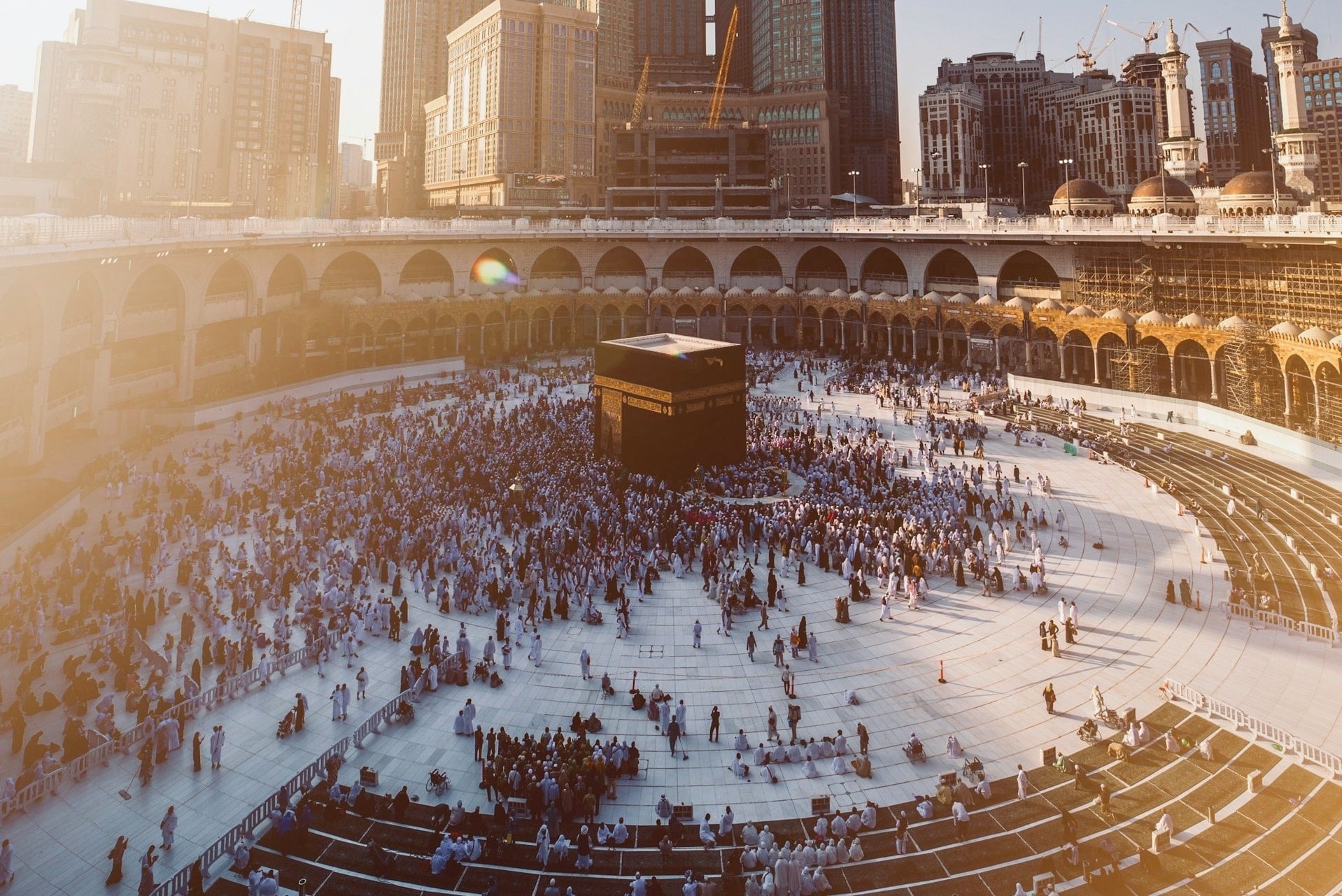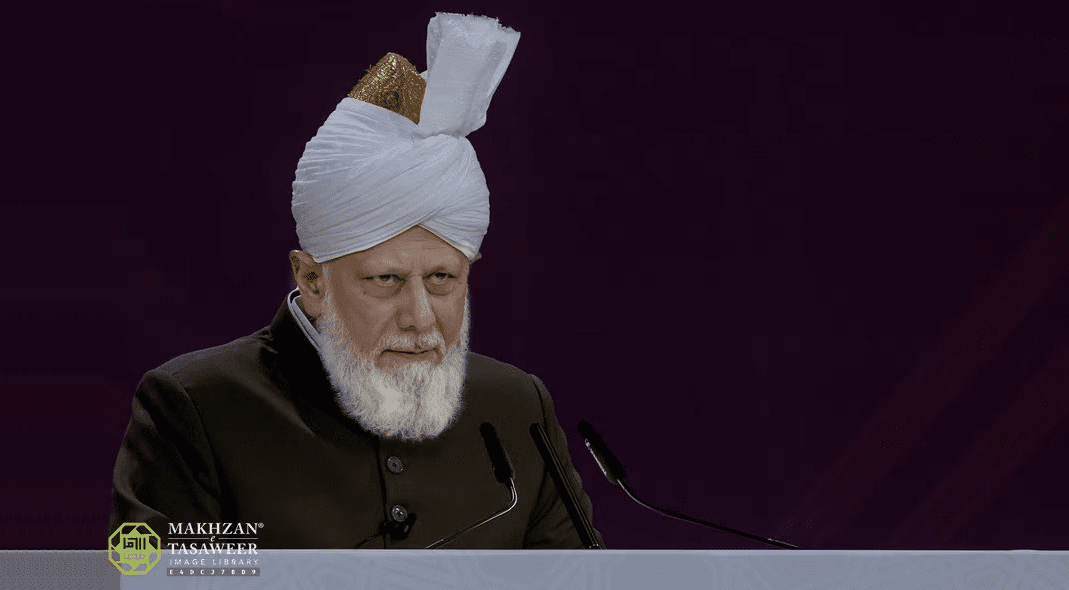Islam created a social structure, which closed the doors of enslavement and opened up many ways through which slaves could be freed and justly integrated into society.
NASIRUDDIN HAMID, QADIAN
AUGUST 23, 2020
Slavery is a curse that had tormented human society for thousands of years. Throughout history, slavery existed as a system that degraded generations of human beings as properties.
According to Britannica encyclopedia, slavery began as the aftermath of wars since ancient times[1]. Initially, the men of the defeated side were ordered to be executed and their women and children were kept as slaves.
After a few decades, when people realised that slaves are the easiest way to generate service and labour, they started to keep even the men alive as slaves along with women and children for trading across the world.
This trend grew faster all over the world as the demand for slaves increased. The enslaved people were considered as animals or mere property and were treated in the most brutal manner. As time passed, the rate of people being enslaved increased as the treatment towards them worsened.
Why did many abolitionist movements fail?
Since slavery was deeply rooted in the traditional behaviour of the society, it was only through a careful and gradual process, this venomous system could have been completely eradicated.
Given that the condition of the slaves was of mere properties, and that they had no source of living or place of shelter of their own, it would have been more of a harm than a favour to free all the slaves at once. Moreover, the notions of supremacy and subjugation deeprooted in the minds of masters and slaves were also to be removed, without which the process would not bear any fruit.
This is probably the main reason many abolitionist movements failed in their efforts to put an end to slavery. There are many instances in human history when sincere efforts to eradicate slavery went in vain, as they failed to address the issue in the proper way.
Islam: The dawn of a new era
At the time of the advent of Islam, hundreds of thousands of slaves existed in the Kingdom of Byzantium, Iran, Greece, and Arabia. With the advent of Islam, the whole social structure of the Arab society was demolished and in its place arose a just and fair system.
Islam completely rejected the concept of slavery. Yet, some people, out of ignorance of prejudice, deem Islam to be the condoner of slavery so much so that terms such as ‘Islamic slave trade’ and ‘Muslim slave trade’ are misleadingly used.
The Islamic way of abolishing slavery was not limited to merely outlawing the practice at a constitutional level; rather it was a gradual process that included changing people’s mindset, freeing the slaves and integrating them into the society.
Prohibition of Enslavement
Firstly, Islam categorically prohibited enslavement. Islam strongly reprimands the practice of enslaving free people and considers it to be an act that invokes God’s wrath. The Holy Prophetsa said:
Allah the Exalted addressed me saying, ‘There are three types of people who I shall be at war against on the day of resurrection. Firstly, a person who makes a covenant in My name but does not fulfill his agreement. Secondly, a person who enslaves a free person, sells him and consumes his value. Thirdly, a person who employs an individual, benefits from his labour, but does not pay him his wage.[2]
Hence, the root from which the disastrous branches of slavery had spread all over the world was at once severed by Islam.
Kind treatment towards slaves
As stated above, changing people’s attitude towards slaves was an essential prerequisite for the elimination of slavery. For this reason, Muslims were repeatedly commanded to treat their slaves kindly and as their own. The Holy Prophetsa said:
Your slaves are your brethren. Hence, if an individual has a slave under his control, then he should feed him what he eats himself and he should clothe him with what he wears himself. Do not burden your slaves with a task that is beyond their capacity and if you do, then assist them in this task yourselves.[3]
By urging Muslims to treat their slaves as their own brethren, Islam enabled slaves to attain the level of free people by dispelling inferiority from their hearts and empowered them to become capable of manumission. This is even more evident from another narration where the Holy Prophetsa said,
None of you should say, ‘My slave, my bond-woman.’ Rather, you should say, ‘My lad, my lass.’ A slave should also refrain from calling his owner ‘My Lord’, rather, he should address him by saying, ‘My master, my guardian.’[4]
In this way, the concept of supremacy was eliminated from the hearts of the people alongside restoring the lost identity of the enslaved people.
Freeing of slaves
While the preconditions for the manumission were being fulfilled, Muslims were also enjoined to free the slaves. This was made possible through two methods; recommendation and obligation. At the very beginning of Islam, around three years after the commencement of prophethood, Allah the Almighty revealed this verse to the Holy Prophetsa:
And what should make thee know what the ascent is? It is the freeing of a slave.[5]
Hence, from the very beginning, it was one of the main objectives of Islam to uproot this social evil which had held the entire society in its grasp. The manumission of slaves is stated to be a virtuous act by which a person can climb to the heights of Divine nearness. The Holy Prophetsa said:
Such a Muslim who frees a slave would be granted complete salvation by Allah the Exalted from hell.[6]
In this way, a desire was generated in the hearts of Muslims to free slaves and attain righteousness. One of the reasons many worldly systems, which worked for the elimination of slavery did not succeed is that they missed this element of volition from the part of the slave owners.
However, apart from these recommendations, the manumission of slaves was also made obligatory upon Muslims as a penalty for certain sins. One of such numerous instances is mentioned in the following verse of the Holy Quran:
As to those who call their wives mothers, and then would go back on what they have said, the penalty for it is the freeing of a slave before they touch each other. This is what you are admonished with.[7]
There were also instances in which the Holy Prophetsa would command Muslims to manumit slaves, for no particular reason. Hence, it is narrated in a Hadith,
Hazrat Asma bint Abi Bakrra relates that the Holy Prophetsa would order the Muslims to free a slave on the occasion of a solar eclipse.[8]
In Islam, the process of a slave becoming free was not always to be initiated from the part of the owner, rather the slaves can earn their freedom on their own. The Holy Quran states:
And such as desire a deed of manumission in writing from among those whom your right hands possess, write it for them if you know any good in them; and give them out of the wealth of Allah which He has bestowed upon you.[9]
Deed of manumission or Mukatabat which the above verse refers to is a contract between a slave and their master. According to this contract, a person is bound to set his slave free after fixing a price for their freedom, who may pay the required amount by earning it through any legitimate means after being set free. The master has no right to reject the demand of the slave to enter into such a contract.
Prisoners of war
As mentioned, slavery began with the enslavement of prisoners in wars. Though this was a means of detaining the unjust and bringing an end to future wars, it was a practice that bounded generations in slavery.
Islam stands against this practice. It rejects the idea of enslaving war captives. The Holy Quran says:
O ye Muslims! When you meet the disbelievers in battle, stand firm in battle and fight the wrongdoers. When the battle has properly taken place, take captives from the enemy men. Then, if there is a hope of reformation and circumstances are deemed to be fit, release these prisoners as an act of benevolence, or by taking an appropriate ransom. If it is necessary to do so, keep them in captivity until war comes to an end, and its burdens are taken off your shoulders.[10]
This verse clearly states that prisoners of war are only to be taken after a regular battle. The enslavement of people by unjustly attacking their country is made unlawful by this statement. It further states that the captives of war are not to be enslaved under any circumstances. Moreover, the duration of captivity should not exceed the duration of the war. Once the war is over and the hostilities come to an end, then the captives should be released either as a favour or by taking ransom.
Conclusion
Islam created a social structure, which closed the doors of slavery and opened up many ways through which slaves could be freed and justly integrated into society. This ascent of the social situation of slaves in the lifetime of the Holy Prophetsa can be seen in the high regard and esteem with which one of the companions of the Holy Prophetsa is commemorated – Hazrat Bilalra, a freed slave.
Prophet Muhammadsa personally ensured the freedom of Bilalra. Later, he was chosen as the first Muazzin (the person who calls for prayer) of Islam. When Muslims became victorious and entered Mecca after years of exile, Prophet Muhammadsa appointed Bilalra as the flag bearer of Muslims.
This scenario where a former slave became the leader of his masters points to the social transformation Islam brought about in Arabia, a parallel to which cannot be found in the entire history of mankind.
Editor’s note: The title given to the article during its initial publication did not regard the fact that Muslims – as they got farther away from the time of the Holy Prophetsa – neglected the Islamic teachings regarding slavery, which resulted in this social vice persisting in Islamic countries for a long time. As such, the title has been amended for the purpose of factual accuracy.
REFERENCES
[1] Encyclopædia Britannica, Slavery prepared by Richard Hellie
[2] Sahih Bukhari, Kitab al-Buyu’ (The Book on Sales and Trade)
[3] Sahih Bukhari, Kitab al-Itq (The Book on Manumission of Slaves)
[4] Sahih Al-Bukhari, Kitab al-Itq (The Book on Manumission of Slaves)
[5] Holy Quran 90: 13-14
[6] Sahih Muslim, Kitab al-Itq (The Book on Emancipation of Slaves)
[7] Holy Quran 58: 4
[8] Sahih Bukhari, Kitab al-Itq (The Book on Manumission of Slaves)
[9] Holy Quran 24: 34
[10] Holy Quran 47: 5













6 Comments
Akhil · September 12, 2020 at 5:26 pm
The article beautifully enlightens the readers who approaches the subject without keeping any prejudices in his mind.
Salman · September 7, 2021 at 9:42 pm
If this is true why slavery continue to exist in Arabia till modern times. Slavery was only abolished in Saudi Arabia in 1962.
Salaam · September 11, 2021 at 11:31 am
If Islam ended slavery in practice at what point in time did the practice of slavery end in the Islamic world? Was it during the time of the prophet, was it during the time of the first four caliphs? Did it end at some point during the next thousand years? And if so, what is the historical reference for such a claim?
Husam Ahmed · September 16, 2021 at 7:11 am
Islam is represented by its teachings, not by the actions of those who claim to follow it. Hence, any country or society that claims to be Islamic may or may not represent Islamic teachings on the basis of their actions being conforming to or against Islam. For instance, it would be wrong to claim that Islam approves of consuming alcohol on the basis of the fact that there are many Muslims who do so. Similarly, many governments claiming to be Islamic, formulate laws that are entirely non-Islamic. The prohibition of women from driving, punishment for rape etc. are to mention but a few. None of such actions are Islamic as they are in stark contradiction to the principles of Islam.
The same is the case with Islamic teachings regarding slavery. The article has explained how slavery could have been abolished only through an effective and gradual process – no need to mention the aftermath of the 13th amendment. Islam proposed that gradual way which would not merely outlaw the practice of slavery, but also uproot it from the minds of people. The Holy Prophet(sa) and his companions acted upon these teachings and the process progressed well. It is reported that Prophets(sa) left behind no slaves after his demise. Similarly, the Holy Quran – while it proposed freeing of slaves as act of atonement for certain wrongdoings – proposes other penalties if slaves are not to be found to be freed, implying that the end-goal of Islam was to put an absolute end to slavery.
However, when Muslims got farther away from the time of the Holy Prophet(sa), they got away also from its true and pristine teachings, resulting in the distortion of Islamic injunctions and practices. Hence, they again started enslaving people (a practice which was categorically outlawed by Islam) and devised strategies to fulfil their vested interests through precluding such people from being emancipated and as a result, slavery persisted in the so-called Islamic societies.
Salaam · September 18, 2021 at 12:56 pm
Just like the abolitionist movements the article criticises Islam didn’t manage to end it in practice either. Both Islam and worldly movements had the same outcomes. If anything secular movements had more success if you study history.
You claim that Islam took a gradual approach to abolishing slavery. But how gradual should it be? Was the lifetime of the Holy Prophet not enough? Or the three decades under the first four divinely guided caliphs? Inspite of all the teachings this article claims, how was slavery not abolished in approximately 40 years of Muslim rule under the prophet and first four caliphs. Compare this with things that Islam unequivocally prohibited like drinking and interest. Were prisoners of war being captured as slaves during this period?
Husam Ahmed · February 26, 2022 at 7:33 am
@Salaam I think the word “criticize” does not accurately represent our view towards such worldly movements. We appreciate all such efforts, however, we believe that those were not adequate and lacked such principles that would truly liberate the slaves, other than freeing them apparently.
To say that the secular movements were more successful compared to Islam is also not correct, for many reasons.
1. Even today, the black people cannot be said to have been emancipated in the true sense, as we continuously witness how they are subjected to extreme discrimination. With laws being reformed, loopholes are also sought to keep them in servitude within the framework of new laws.
2. History provides us with enough evidence on how the emancipation proclamation of 1865 proved detrimental to the freed slaves and resulted in either a million of them dying of hunger and disease, or returning to their former masters, as they were left with no other option. You may refer the book “Sick from Freedom: African-American Illness and Suffering During the Civil War and Reconstruction” by Jim Downs for more information in this regard.
3. Islamic teachings, on the other side, truly succeeded in emancipating the slaves in the absolute sense, who were well integrated into society and earned all respect, even becoming leaders of their ‘former masters’. There are many instances that can be quoted in this regard from Islam’s early history.
But, it is a fact that slavery persisted in Islamic countries despite all these teachings. Why? As I already mentioned, these teachings ceased to be followed after some time. A prime example of this is that Muslim rulers enslaved people from other countries, while the Holy Prophet(sa) had categorically forbidden this practice. This is rather an evidence to the importance and effectiveness of the Islamic teachings that not following those would indeed prove to be harmful. Hence, as many other non-Islamic practices can be found to be existing in Islamic societies, this evil practice also continued to exist in those countries.